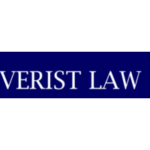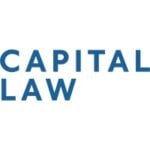-
Please briefly describe the regulatory framework and landscape of both equity and debt capital market in your jurisdiction, including the major regimes, regulators and authorities.
Legal framework:
The major regulatory regimes for the equity and debt capital market in Vietnam are Law on Enterprises 2020 (stipulating the establishment, management and operation of different enterprise types) and Law on Securities 2019 (as amended by Law No. 56/2024/QH15 dated 29 November 2024 of the National Assembly) (stipulating the offering, listing, trading of different types of securities and implementing business related to and investing in securities) and their guiding documents, particularly:
- Decree 155/2020/ND-CP guiding Law on Securities 2019;
- Decree 153/2020/ND-CP (as amended) regulating the private offering and trading of corporate bonds in the domestic market and the offering of corporate bonds to the international market;
- Circular 96/2020/TT-BTC guiding disclosure of information on the securities market (as amended by Circular 68/2024/TT-BTC dated 18 September 2024 of the Ministry of Finance);
- Circular 98/2020/TT-BTC and Circular 118/2020/TT-BTC providing forms of prospectus; and
- Circular 19/2025/TT-BTC on the registration and deregistration of public company status, and audited reports on contributed charter capital.
It is noted that:
- matters regarding bonds issued or guaranteed by the State, and corporate bonds issued by credit institutions will be governed by other specialised legal documents; and
- other than legislative documents, competent authorities (such as SSC, VNX, HOSE and HSX (as defined below)) also provide further guiding documents.
Regulatory structure:
Agencies regulating Vietnamese securities market include:
- The Ministry of Finance (MOF) is the main regulator authorised by the Government to administer securities and securities market; and
- The State Securities Commission (SSC), being the professional and specialised ministerial units of MOF, directly undertakes the state management of securities and securities market. SSC grants most of approvals, certifications and licenses regarding securities and securities market.
In addition, the State Bank of Vietnam (SBV) is the principal regulator of banking industry, in charge of (a) overseeing credit institutions’ issuance of or investment in securities and (b) regulating foreign exchange controls for securities activities.
There are semi-regulatory agencies which include:
- Vietnam Exchange (VNX) is a limited company with 100% State-owned capital, which has two subsidiaries providing securities trading platforms which are Hanoi Stock Exchange (HNX) and Ho Chi Minh City Stock Exchange (HOSE). Under the reorganisation of securities market expected to be completed before 2027, HNX will primarily operating trading market for derivatives and bonds, while HOSE will primarily handle shares;
- Unlisted Public Company Market (UPCoM), overseen by HNX, is a trading market for unlisted securities.
- Vietnam Securities Depository and Clearing Corporation (VSDC) manages clearing, settlement and custody for listed securities.
-
Please briefly describe the common exemptions for securities offerings without prospectus and/or regulatory registration in your market.
At laws, before carrying out public offering of securities (which is an offer for securities sale either (x) implemented via mass media, (y) to at least 100 investors excluding professional securities investors, or (z) to undefined investors), issuing institutes and/or shareholders of public companies must register it with SSC by submitting a prospectus together with other mandatory documents. However, there exist exceptions where this registration is not required, and thus, a prospectus is not needed. Those exceptions are:
- Offering of debt instruments of the Government, government-guaranteed bonds issued by policy banks, and municipal bonds;
- Offering of bonds of international financial institutions approved by the Vietnamese Government;
- Public offering of stocks for transformation of state enterprises, single-member limited liability companies with 100% of charter capital held by state enterprises or public non-business units into joint-stock companies; and
- Sale of securities under legally effective court judgments or rulings or arbitration awards, or sale of securities of property managers or recipients in case of bankruptcy or insolvency.
Additionally, a prospectus is not required in case of securities private placements, being the offering of securities not conducted in the mass media and by one of the following modes:
- Offering of securities to less than 100 investors, except professional securities investors; or
- Offering of securities only to professional securities investors.
However, with respect to private placement of bonds, issuers must prepare an information disclosure document regarding the bond offering (as in prescribed form) and provide it to investors registering to purchase bonds and HNX.
-
Please describe the insider trading regulations and describe what a public company would generally do to prevent any violation of such regulations.
Vietnamese laws prohibit (i) using inside information to buy or sell securities for oneself or for others and (ii) disclosing inside information or advising others to buy or sell securities based on inside information. “Inside information” is defined as information about a public company, listed institution, institution with trading registration, public fund or public securities investment company that is undisclosed or, once disclosed, may significantly affect price of its securities. Further, violations relating to inside information can result in administrative or criminal liability, depending on the amount of illegal revenue and other characteristics (such as organised crime, the level of loss incurred by investors, or recidivism), and violators also may subject to civil liability simultaneously.
To prevent insider trading, the laws require public companies to fully, accurately and promptly disclose information which may affect securities prices. Also, a public company can take the following measures:
- Create an insider list and update such list frequently;
- Provide clear and specific definitions of insider information and insider trading in its internal governance regulations; and
- Promulgate internal policy on handling of inside information and circulate strict disciplinary measures imposed on violations regarding insider information in its internal labour regulations;
- In cases where external consultants are permitted to access to the company’s inside information, it should reach an agreement with such consultants, expressly stating particular information to be disclosed and specific circumstances under which disclosure is allowed, and the consultants’ obligations to maintain the confidentiality of such information.
-
What are the key remedies available to shareholders of public companies / debt securities holders in your market?
With respect to the shareholders of public companies:
- Limited liability: at laws, a shareholder’s liability for the company’s debt and liabilities shall be limited to the amount of capital contributed to the company by such shareholder.
- Derivative action: a shareholder or a group of shareholders holding at least 1% of the total number of ordinary shares can sue, in their own name or on behalf of the company, members the Board of Directors (“BOD”) or the CEO for personal or joint liability if their violation(s) falls into one of cases prescribed by laws or by such company’s charter, seeking compensation for the damage to the company or others.
- Request for a meeting of General Meeting of Shareholders (“GMS”): a shareholder or a group of shareholders holding at least 5% of the total number of ordinary shares (or a smaller rate as specified in the company charter) can convene a GMS meeting if (i) the BOD seriously breaches shareholder rights or obligations of managers or issues a decision beyond its assigned competence, or (ii) it falls into other cases specified in the company charter.
- Request for annulment of GMS resolutions: within 90 days from the date of receipt a resolution or a meeting minutes of the GMS or the result minutes of vote-counting by way of written opinions from the GMS, a shareholder or a group of shareholders holding at least 5% of the total number of ordinary shares (or a smaller rate as specified in the company charter) can request a court or an arbitration to annul the whole or part of a GMS resolution if (i) it violates laws or company charter, or (ii) its issuance seriously violates procedures stipulated by laws or company charter, except for resolutions adopted by 100% of voting shares.
With respect to debt securities holders:
- Contractual remedies: Agreements between debt issuers and primary security holders often include default clauses, enabling security holders to demand immediate payment of unpaid principal and interest. Also, Vietnamese laws allow issuers to create security interest in favour of debt security holders, which would be clearly stated in agreement and can be enforced upon a default.
- Bankruptcy proceedings: If an issuer fails to pay its due debts within 3 months from the due dates thereof, the corresponding creditors can file a petition for commencement of bankruptcy proceedings against such issuer, provided that the creditors must be unsecured creditors or partially secured creditors of such debts. Upon the bankruptcy decision, creditors may receive proceeds from the asset’s liquidation, depending on their priority. Otherwise, creditors may collaborate to reach an agreement allowing the issuer to recover its business.
-
Please describe the expected outlook in fund raising activities (equity and debt) in your market in 2025.
Equity raising activities:
Vietnam was the best-performing stock market in Southeast Asia in 2024. However, in the earlier part of 2025, portfolio investment flows from foreign investors have seen some pullback. While macroeconomic factors are the primary drivers of this trend, significant challenges remain, such as transaction and infrastructure-related hurdles, as well as relatively lower corporate transparency and disclosure standards.
Additionally, in March 2025, the administration of U.S. President Donald Trump announced a sweeping 46% tariff on Vietnamese imports, citing Vietnam’s substantial trade surplus with the U.S.. This broader escalation of trade tensions and potential resurgence of a U.S.-China trade war has reintroduced volatility and uncertainty into global trade flows, which may significantly affect the outlook of Vietnam’s capital market, particularly when Vietnam is a highly export-dependent economy. As a result, sectors closely tied to global supply chains—such as manufacturing, logistics, and raw materials—are expected to be more exposed to such external risks.
Recognising the urgency of the matters at hand, the Vietnamese government has promptly and actively taken steps to enter into negotiation with the U.S. aiming to reach a bilateral trade agreement between the two countries. In particulars, in April, shortly after the announcement from the Trump administration, the tariff imposed by the U.S. on Vietnamese imports was reduced to 10% for a 90-day period to allow for further bilateral discussions. From April to May, Vietnam and the U.S. conducted two rounds of trade negotiations. The first round took place in early May 2025, focusing on addressing the U.S. trade deficit with Vietnam and identifying measures to strengthen bilateral trade relations. The second round, held from May 19 to 22 in Washington, D.C., involved Vietnam’s Minister of Industry and Trade Nguyen Hong Dien and U.S. Trade Representative Jamieson Greer. The discussions were made on several key issues, including joint efforts to combat trade fraud, reduce Vietnam’s trade surplus with the U.S., and implement stricter regulations to prevent the transhipment of goods from third countries through Vietnamese territory.
On July 2, the Trump administration announced a trade deal framework with Vietnam which reduced the proposed U.S. tariffs on Vietnamese goods from 46% to 20%, while a 40% tariff would be applied to transshipped goods. In return, Vietnam agreed to eliminate tariffs on U.S. imports and grant special access to certain products. Vietnam is among the first countries (after the UK and China) to reach such a framework with the U.S. following the announcement of sweeping tariffs in March 2025. Given the unpredictability of U.S. trade policies under the Trump’s administration, Vietnam’s early success in securing a fixed tariff rate signals a positive outlook for the market.
In addition to the above, several other positive changes have also taken place domestically. Regulatory reforms such as the adoption of IFRS and the removal of pre-funding requirements for securities trading, combined with the successful launch of the KRX trading system in May 2025 are paving the way for Vietnam’s stock market to be reclassified from a frontier market to a secondary emerging market, expected in September 2025.
Despite the plummet during April as a result of the tariffs imposed by the U.S., Vietnam stock market closes its first half of 2025 at its three-year peak, recording a 9% increase since starting of this year. While certain fluctuation to the market may still be reasonably expected in the shortcoming future when the financial statements of the first half of 2025 become available (i.e., August and September); experts maintain a positive view on the market in the long term given that the Vietnamese government has been taking measures to achieve stable macroeconomic foundation, particularly when the tariffs issue has been addressed by the trade deal framework between the U.S. and Vietnam.
Bond raising activities:
The total value of newly issued corporate bonds in 2024 reached nearly VND 500 trillion (approximately USD19.64 billion), marking a 45% increase compared to the previous year. This represents a strong growth rate, second only to the peak years of 2020–2021.
In the year 2025, Vietnam’s bond market is expected to continue its positive development, driven by several factors: (i) Vietnam’s economy is expected to further recover in 2025, creating favourable conditions for business operations and improving corporate bond repayment capacity; (ii) the implementation of new regulations (such as the Law amending the Securities Law, the Law on Land, the Law on Housing, and the Law on Real Estate Business); (iii) a high demand for capital to fund new projects, particularly in the real estate and renewable energy sectors; (iv) the development of new financial products, especially green bonds, which are expected to play a key role in sustainable growth and attract significant investor interest.
However, bond maturities will remain a major challenge in 2025. In accordance with the report by MB Securities JSC, the total value of maturing corporate bonds is projected to reach approximately VND 151 trillion (approximately USD5.93 billion), with the highest repayment pressure concentrated in 3rd quarter. The real estate sector will continue to account for the largest share, followed by the banking sector.
-
What are the essential requirements for listing a company in the main stock exchange(s) in your market? Please describe the simplified regime (if any) for company seeking a dual-listing in your market.
First of all, it should be noted that under Vietnamese laws, listed companies and public companies are different. A public company is a joint stock company which (i) meets minimum requirement regarding charter capital and number of investors or has completed its IPO, and (ii) is certified as being a public company by SSC. Meanwhile, a listed company, although not explicitly defined by laws, is understood to be a company whose shares are listed on a stock exchange.
Further, various types of securities (such as shares, debt securities, fund certificates, covered warrants, depository certificates, and derivative securities) can be listed in the stock exchange. However, the most commonly listed ones are shares and bonds.
Requirements for securities of Vietnamese entities to be listed in Vietnam:
To be listed in the stock exchange, a company must satisfy the following requirements:
- Issuer is a joint stock company with a minimum paid-up charter capital of VND30 billion and a market capitalisation value of at least VND30 billion calculated on the weighted average of the payment prices for shares in the latest public offering at the time of listing registration;
- Business results (reflecting in return on equity of at least 5% in the preceding year, being profitable for 2 consecutive years prior to the year of listing registration, no debts over for more than 1 year, no accumulated loss);
- At least 15% of its voting shares held by at least 100 non-major shareholders (or 10% of voting shares if the charter capital is VND1,000 billion or more);
- Obtaining GMS approval for listing;
- Completing initial public offering (as certified by SSC), or by equitisation or after having shares traded on the UPCoM for at least 2 years;
- Having a security company to advise on the application for listing registration;
- No recent penalties for securities offenses within 2 years leading up to the listing registration; and
- Certain shareholders must hold a certain amount of their shares for a specific time after listing.
Regarding to the listing of bonds, please see question #24.
Dual-listing:
At laws, both Vietnamese listed and non-listed enterprises are allowed to be listed in foreign stock exchanges. However, relevant requirements and procedures applied to those kinds of enterprises are similar, which includes, among others, obtaining SSC ’s approval thereof. Additionally, shares of offshore enterprises are allowed to be listed in Vietnam provided that they meet sufficiently mandatory requirements, one of which being have already been offered to the public in Vietnam. For offshore enterprise’s shares to be publicly offered in Vietnam, among other requirements, (i) such offshore enterprise must have at least one investment project in Vietnam approved by Vietnamese authorities; (ii) the total amount of money raised from the offering must not exceed 30% of the total investment capital of such project, and (iii) the money raised through such public offering must not be transferred abroad. Apart from that, listing requirements applicable to Vietnamese enterprises also apply to foreign entities with minimal differences.
-
Are weighted voting rights in listed companies allowed in your market? What special rights are allowed to be reserved (if any) to certain shareholders after a company goes public?
At laws, there is no specific provision prohibiting listed company having voting preference shares. That having said, voting preference shares of a company may be held by only its founding shareholders (which will expire after the first three years since the company’s establishment) and organisations authorised by the Government (during the time specified in the company charter).
Under Vietnamese laws, there should generally be no special rights reserved to the shareholders of a company after it has been certified by SCC as being a public company. In contrast, after a company going public, certain special rights of specific shareholders that has existed before such company being listed will remain intact, provided that these rights are stipulated in the company’s charter.
-
Is listing of SPAC allowed in your market? If so, please briefly describe the relevant regulations for SPAC listing.
Vietnamese laws do not provide any provision on SPAC. Similar to ordinary companies, a SPAC shall be subject to the same conditions and follow the same procedures stipulated in laws on security to be listed in Vietnam. Such mandatory conditions include, among other things, having profit from its actual business operations. It seems that a SPAC, being a company without commercial operations, hardly meets this condition, and thus it is illegible to be listed in VNX.
-
Please describe the potential prospectus liabilities in your market.
Potential violations regarding prospectus which charged people or issuing companies may commit are as follows:
- Forging documents or making certification on forged documents; and
- Use information not included in the prospectus or use information differing from one in the prospectus to make market surveys before obtaining permission for public offering.
The latter case can be considered an administrative violation, which may be applied monetary up to VND150 million (approx. USD6,000) with respect to organisations and up to VND75 million (approx. USD3,000) with respect to individuals. Meanwhile, for the remaining case, subject mainly to the illegal amounts raised from the violation, either criminal or administrative penalties can be imposed on offenders, and civil liabilities, whether arising from a contract or outside of it, may also be imposed simultaneously.
-
Please describe the key minority shareholder protection mechanisms in your market.
Vietnamese laws do not provide a clear definition of minority shareholders. However, major shareholders are defined to mean shareholders holding at least 5% of voting shares of a company. Therefore, it may be understood that minority shareholders are those who own less than 5% of voting shares of a company.
- GMS approval requirement and rights to attend and vote at GMS meeting: certain crucial transactions and corporate actions of a joint stock company will be subject to the GMS’s pre-approval, and all ordinary shareholders have the right to attend, speak at the GMS meeting and exercise voting rights, with each of ordinary share having one vote.
- Right to nominate candidates for the BOD or the Board of Controllers (BOC): a group of minority shareholders holding 10% or more of the total ordinary shares (or a smaller ratio as prescribed in the company charter) can exercise this right.
- Right to take derivative action, challenge GMS resolution, and convene an extraordinary meeting of GMS: see question #4.
- Voluntary delisting requirements: regarding listed companies, more than 50% of the votes of shareholders who are not major ones are needed to approve the rescission of listing of shares and fund certificates.
- Requirement to engage independent directors: see question #16.
-
What are the common types of transactions involving public companies that would require regulatory scrutiny and/or disclosure?
At laws, certain transactions will trigger a tender offer and must be registered with SSC and disclosed to the public (see question #15). Further, public companies and organisations issuing corporate bonds via public offering method must disclose the following within 24 hours of the occurrence thereof:
- Shares redemption;
- Transaction making a company become or no longer be a subsidiary of such public company/organisation (where the latter will hold less than 50% charter capital or the total number of ordinary shares of the former, or the latter no longer has the power to appoint key managers or decide to amend the company charter of the former) or an affiliate thereof (where the latter no longer hold, directly or indirectly, at least 20% of voting shares of the former in order to have significant influence over the decision-making process of the former);
- Transaction exceeding 15% of the company’s total assets recorded in its latest financial statement;
- Selection or change of an auditing firm; and
- Transaction with their insiders (being individuals holding an important position in the governance or executive apparatus of an enterprise, “Insider”) or a related party of companies’ Insider or companies’ related party approved by the GMS or the BOD.
Additionally, listed companies and a large-scale public companies (being public companies with the owner’s capital contribution of VND120 billion or more) must disclose:
- Borrowing, lending, capital contribution in an organisation or a project, or another transaction with the value of 10% or more of the companies’ total assets recorded in its latest financial statement; and
- Capital contribution worth at least 50% of charter capital of the organisation receiving such capital contribution.
-
Please describe the scope of related parties and introduce any special regulatory approval and disclosure mechanism in place for related parties’ transactions.
Scope of related parties:
“Related parties” is defined in both Law on Enterprise and Law on Securities, however, the definition under Law on Securities, which applies particularly to listed/public companies, seems broader. According Law on Securities, an individual or organisation who is in one of the following relationships will be determined as a related party:
- Enterprise and its Insiders;
- Enterprise and entities holding over 10% of such enterprise’s voting shares or contributed capital;
- Entities directly or indirectly controlling or controlled by other entities, or is subject to the same control with such entities;
- Individuals and their relatives (g., parents, spouse, children, siblings);
- Securities investment fund management companies, and securities investment funds and securities investment companies which they manage;
- Contractual relations in which one party represents the other party; and
- Other entities as prescribed in Law on Enterprise, such as enterprises having the related parties (as falling into one of the above cases) owning shares or contributed capital amounts to the level entitling them to control the decision-making process of such enterprises.
Approval for related parties’ transactions:
Applicable to a joint stock company, certain transactions require a prior approval from the GMS or the BOD, including:
- transactions with shareholders holding over 10% of the company’s ordinary shares, its representative (if any) and their related party;
- transactions with the BOD members, (General) Director and their related party;
- transactions with enterprises which the related party of BOD members, Controllers, (General) Director and other managers of the company is the owners, or jointly or separately own contributed capital amounts or shares of more than 10% of charter capital (“Related Parties’ Enterprise”); and
- transactions involving borrowing, lending or sale of assets over 10% of the company’s total assets value with shareholders holding 51% or more of its voting shares and their related party.
With respect to public companies only, laws on securities also require the GMS or BOD approval for:
- loans or guarantees to BOD members, Controllers, (General) Directors, other managers who are not shareholders, or their related party;
- transactions for borrowing or sale of assets over 10% of the total asset value between the company and shareholder(s) holding 51% or more of its voting shares or related parties of such shareholder(s); and
- transactions valued at 35% or more or a transaction resulting in the total value of transactions occurring within 12 months from the date of the first transaction valued at 35% or more of the total asset value or smaller value as prescribed under the company charter between the company and one of the following entities: (i) BOD members, Controllers, (General) Director, other managers and their related parties; (ii) shareholders holding more than 10% of the company’s ordinary share capital, their authorised representatives or related parties; and (iii) Related Parties’ Enterprises.
Disclosure of related parties’ transactions:
Public companies must disclose any approved transactions with its Insiders or the related parties of its Insiders or its related parties within 24 hours of the GMS or BOD approval.
-
What are the key continuing obligations of a substantial shareholder and controlling shareholder of a listed company?
Under laws on securities, a major shareholder of a listed company means a shareholder holding at least 5% of voting shares of such company, while a controlling shareholder (though not expressly defined by laws) is understood as a shareholder holding a certain number of shares to the level enabling it control the company’s decision, typically over 50% or at least 65% of voting shares (as the case may be), or another threshold specified in the company’s charter needed to pass the GMS resolutions.
Where (i) an organisation or individual becomes or is no longer a major shareholder of a listed company or (ii) a major shareholder of a listed company changes their voting share by over 1% by involving in transactions, such major shareholder is obliged to disclose and report thereof to the public company, SSC and the stock exchange where the shares of the public company are listed (if applicable) within 5 business days.
This disclosing and reporting requirements also apply to any group of related parties owning 5% or more of the voting shares in a public company.
-
What corporate actions or transactions require shareholders’ approval?
The GMS approval is stipulated in both enterprises and securities laws. Apart from transactions between an enterprise and its related parties (discussed in question #12), other notable principal corporate actions or transactions requiring GMS approval are as follows:
Transactions Corporate actions (i) offering of securities and the use of capital earned from the offering tranche; (ii) listing or registration for trading of shares on the securities trading system;
(iii) investment decision or decision on sale of assets valued at 35% or more of the total value of assets as recorded in its latest financial statements or at another value as prescribed in its charter company;
(iv) redemption of more than 10% of the total number of shares of each class already sold; and
(i) election, removal or discharging of members of the BOD or the BOC; (ii) amendments of and additions to the company charter;
(iii) consideration and handling of violations committed by members of the BOD or members of the BOC which cause damage to the company and its shareholders;
(iv) its reorganisation and dissolution;
(v) approval of internal governance regulation; and operation regulations of the BOD and the BOC;
(v) / (vi) other matters allowed by laws as specified in the company charters. -
Under what circumstances a mandatory tender offer would be triggered? Is there any exemption commonly relied upon?
(We note that for the scope of this question, “the Related Parties” referred herein means individuals and organisations listed in question #12, except for one prescribed in limb (v).)
An investor and its Related Parties (collectively “Buyer”) must follow tender offer procedures, including registration with SSC (“Tender Offer”) to buy shares in a public company or a closed investment fund (collectively “Target”) if such acquisition falls into one of the following cases:
- The Buyer intend to, directly or indirectly, acquire or subscribe for 25% or more voting shares/currently circulating closed investment certificates of the Target (“Target’s Securities”);
- The Buyer already hold at least 25% of the Target’s Securities, and their subsequent acquisition/subscription would bring their total ownership to 35%, 45%, 55%, 65%, or 75%;
- If the Buyer already hold 80% or more of the Target’s Securities and a previous tender offer did not cover 100%, the Buyer must acquire all remaining Target’s Securities from the existing holders of the Target’s Securities on the same terms and conditions as in the previous tender offer within 30 days of such previous tender offer.
The Buyer shall be exempted from the Tender Offer requirement if:
- Their acquisition/subscription has been approved by the GMS or fund representative committee of the Target;
- Shares are transferred between in the same group, which not leads to cross ownership;
- The acquisition of State capital or capital owned by Stated-owned enterprises in another enterprise;
- The acquisition of shares through activities of division, separation, consolidation, or merge of enterprises;
- Donation of or bequeathing shares/currently circulating closed investment certificates; and
- Implementing according to court judgments or rulings or arbitration awards.
-
Are public companies required to engage any independent directors? What are the specific requirements for a director to be considered as “independent”?
At laws, both non-listed and listed public companies are required to engage independent directors. In particular:
- For non-listed companies: if a joint stock company does not have the BOC, then at least one-fifth of its total numbers of BOD’s members must be independent members, or if the number of BOD’s members is less than 5, at least 1 independent member.
- For listed companies:
Number of BOD members Minimum number of independent members 3-5 1 6-8 2 9-11 3 An independent member of the BOD must:
- not currently work at or have worked for at least the 3 preceding years at the company, its parent company or its subsidiary company;
- not receive salary or remuneration from the company, except for allowances for the BOD;
- not have a close family member as a significant shareholder or a manager of the company or its subsidiary company;
- not hold 1% or more of the company voting shares;
- not have served on the BOD or the BOC of the company for at least five preceding years, except in the case of appointment for 2 consecutive terms.
-
What financial statements are required for a public equity offering? When do financial statements go stale? Under what accounting standards do the financial statements have to be prepared?
The annual financial statements are essential for a public equity offering. Specifically, the prospectus and application dossier must include issuers’ audited financial statements for the last two fiscal years. If the dossier is submitted within 60 days after the fiscal year-end, the annual financial statement of the preceding year can be unaudited but it must be accompanied with audited financial statements of the two preceding years. If the latest financial statement is over 90 days old at submission, an additional statement for the most recent month or quarter is required. Depending on the types of securities to be offered, quarterly financial statements or reviewed semi-annual financial statements may also be needed.
Since 2022, subject to certain conditions, Vietnamese enterprises can choose between the Vietnamese Accounting Standard (VAS) and International Financial Reporting Standard (IFRS) to prepare their financial statements. However, after 2025, it is expected that several kinds of enterprise must compulsorily comply with IFRS, including: (i) all parent companies of state-owned economic groups, (ii) all listed companies, and (iii) all large-scale public companies being parent companies but not yet listed.
-
Please describe the key environmental, social, and governance (ESG) and sustainability requirements in your market. What are the key recent changes or potential changes?
Each year, public companies and listed companies must prepare and disclose an ESG assessment report within 110 days from the end of each financial year. This report can be a part of the annual report or a separate Sustainability Development Report, covering greenhouse gas emissions, energy and water consumption, compliance with laws on environmental protection, policies concerning employees, local community responsibility, investments and other community development activities. The Board of Management must also assess the company’s environmental and social responsibilities in the annual report.
In addition, the capital amount raised through the issuance of green bonds must be tracked separately and disbursed only for projects approved in issuance plans, and the process for accounting, management and disbursement of capital has to be disclosed by issuers prior to the issuance of green bonds. Further, green bonds issuing companies must make (i) an annual report thereof, including the review opinions of an audit firm, (ii) an annual report on disbursement progress and project implementation progress, and (iii) an annual report on environmental impact assessment.
-
What are the typical offering structures for issuing debt securities in your jurisdiction? Does the holding company issue debt securities directly or indirectly (by setting up a SPV)? What are the main purposes for issuing debt securities indirectly?
In Vietnam, other than debt instruments granted or warranted by the State, the debts instrument issued by private entities (including limited liability companies and joint stock companies) is corporate bonds having the term of more than one year. The offering of bonds can be implemented in the form of public offering or private placement, and by way of a single issuance or in multiple tranches. In the case of private placement, bond issuers shall arrange the issuance of bonds via mandatory methods, which include bidding, underwriting, bond issuance agency service, and direct sale of bonds to investors (if issuers being credit institutions).
For private bond placements, the funds must be used for issuers’ investment projects or debt restructuring, which means that a SPV cannot use monies raising from private bond placements for business operations and investment projects of its parent company. Therefore, it is unlikely to exist a case where a holding company would set up a SPV solely to issue bonds. However, a holding company can set up a SPV to independently implement investment projects, and subsequently such SPV may issue bonds by private placement to finance for these projects.
On the other hand, legally speaking, holding companies can set up a SPV and then using such SPV to issue bonds to the public. However, one requirement for public bond offering is having profit from its actual business operation, which is quite difficult to be met by a SPV which may have no commercial operation due to being newly established. The issuance of bonds through a SPV in this case is mainly to separate debt liabilities from its parent company and even share risks among other SPV’s shareholders (as applicable). Moreover, since only enterprises established under Vietnamese laws can issue bonds in Vietnam, a foreign entity must establish an enterprise in Vietnam to issue bonds.
-
Are trust structures adopted for issuing debt securities in your jurisdiction? What are the typical trustee’s duties and obligations under the trust structure after the offering?
Trust is not a recognised concept under Vietnamese laws. Instead, it only recognises receipt of investment trust by credit institutions, foreign bank branches, securities investment fund management companies and branches of foreign fund management companies to purchase corporate bonds on behalf of bondholders.
However, in the context of bonds issuance, there is a similar concept known as “bond issuance agency service”. It is one of securities issuance methods in which an issuer would authorise another entity to sell its corporate bonds to bond purchasers. At laws, bond issuance agencies can be licensed securities companies, commercial banks, and foreign bank branches. The specific obligations of bond issuance agencies will vary and are detailed in their agreement with the issuers. Their typical obligations may include:
- Provide bonds purchasers with adequate and accurate necessary information regarding the bonds offering event;
- Distribute bonds to investors;
- Confirm that the proceeds from the bond offering have been transferred to issuers’ account for receiving payments for bonds, and send such confirmations to the issuers; and
- Disclose information on the results of on offering.
-
What are the typical credit enhancement measure (guarantee, letter of credit or keep-well deed) for issuing debt securities? Please describe the factors when considering which credit enhancement structure to adopt.
Common enhancing credit measures for issuing debt securities includes asset-backed security (i.e., mortgage over issuers’ assets), underwriting services provided by reputable securities firms, and shares conversion/exchange (i.e., allowing bondholders to convert bonds into shares of the bond issuer or the issuer’s affiliate).
When determining the appropriate credit enhancement method, various factors are weighed, including: (i) the shareholding structure of the issuer (e.g., when the issuer is an SPV issuing bonds via a public offering, the parent company of that issuer may guarantee the issuer’s payment obligation or the parent company may use its assets to secure the SPV’s bonds); (ii) the quality of the issuer’s asset and its reputation; and (iii) the cost of each methods.
-
What are the typical restrictive covenants in the debt securities’ terms and conditions, if any, and the purposes of such restrictive covenants? What are the future development trends of such restrictive covenants in your jurisdiction?
In the Vietnamese bond market, restrictive covenants are utilised to protect bondholders and maintain the issuer’s creditworthiness and solvency. Set out below are some common ones, though they can vary depending on the issuer’s credit profile, business sector, and negotiation power:
- No reorganisation of the issuer;
- No amendments to issuer’s constitutional documents (e.g., charter) which adversely affects the bondholders;
- The issuer shall not take any actions (g., enter into transactions) which contradicts or leads to an event of default;
- Indebtedness Limitations restricting issuers from taking on excessive debt beyond specified limits;
- Financial covenants requiring issuers to maintain financial ratio;
- No disposal of high value assets; and
- Maintenance of ownership ratio in/no change of issuers’ control over their subsidiaries/affiliates.
-
In general, who is responsible for any profit/income/withholding taxes related to the payment of debt securities’ interests in your jurisdiction?
In Vietnam, bondholders are responsible for paying taxes on bond interest. Vietnamese corporate and individual bondholders receiving interest earnt on bonds are subject to corporate income tax (CIT) and personal income tax (PIT) respectively. Besides, foreign bondholders are required to pay withholding tax comprising two components of CIT and value added tax (VAT), however, interest from bonds are exempt from VAT. The taxes paid by foreign bondholders shall be withheld by Vietnamese issuers on the relevant payment day.
Further, Vietnam has entered into double taxation agreements (DTA) with several other countries, which allows investors incorporated in those jurisdictions to pay income tax in only one of contracting countries. Thus, foreign investors who have paid taxes in their own country (which has a DTA with Vietnam) can apply for tax exemption or deduction in Vietnam.
-
What are the main listing requirements for listing debt securities in your jurisdiction? What are the continuing obligations of the issuer after the listing?
Requirements for listing bonds:
At laws, listed corporate bonds are bonds which has been completely offered to the public. As such, mandatory requirements for listing corporate bonds are similar ones for public offering of such bonds, which include, among other things:
- The paid-up charter capital of issuer is at least VND30 billion;
- Business operation in the preceding year having profit, no accumulated loss, and no debts overdue for more than 1 year;
- The issuer having a credit rating provided by a credit rating agency (if applicable); and
- Opening an escrow account to receive payments for purchase of bonds.
Additionally, such issued bonds must be registered for central depository prior to the listing and receive the Certificate granted by the VSDC thereof.
Obligations of issuers after listing:
- Disclosure obligations: Bond issuers is obliged to disclose various information either periodically or extraordinarily or at the request of SSC or HNX, which includes, among other things, payment progress and capital usage report (if bonds used for project investment). An issuer being public company or organisation listing shares would be subject to further disclosure requirements.
- Registration with the VSDC: Bond issuers must register details of listed bonds with VSDC, directly or through securities companies, and any changes in registered information must be promptly updated with VSDC.
Vietnam: Capital Markets
This country-specific Q&A provides an overview of Capital Markets laws and regulations applicable in Vietnam.
-
Please briefly describe the regulatory framework and landscape of both equity and debt capital market in your jurisdiction, including the major regimes, regulators and authorities.
-
Please briefly describe the common exemptions for securities offerings without prospectus and/or regulatory registration in your market.
-
Please describe the insider trading regulations and describe what a public company would generally do to prevent any violation of such regulations.
-
What are the key remedies available to shareholders of public companies / debt securities holders in your market?
-
Please describe the expected outlook in fund raising activities (equity and debt) in your market in 2025.
-
What are the essential requirements for listing a company in the main stock exchange(s) in your market? Please describe the simplified regime (if any) for company seeking a dual-listing in your market.
-
Are weighted voting rights in listed companies allowed in your market? What special rights are allowed to be reserved (if any) to certain shareholders after a company goes public?
-
Is listing of SPAC allowed in your market? If so, please briefly describe the relevant regulations for SPAC listing.
-
Please describe the potential prospectus liabilities in your market.
-
Please describe the key minority shareholder protection mechanisms in your market.
-
What are the common types of transactions involving public companies that would require regulatory scrutiny and/or disclosure?
-
Please describe the scope of related parties and introduce any special regulatory approval and disclosure mechanism in place for related parties’ transactions.
-
What are the key continuing obligations of a substantial shareholder and controlling shareholder of a listed company?
-
What corporate actions or transactions require shareholders’ approval?
-
Under what circumstances a mandatory tender offer would be triggered? Is there any exemption commonly relied upon?
-
Are public companies required to engage any independent directors? What are the specific requirements for a director to be considered as “independent”?
-
What financial statements are required for a public equity offering? When do financial statements go stale? Under what accounting standards do the financial statements have to be prepared?
-
Please describe the key environmental, social, and governance (ESG) and sustainability requirements in your market. What are the key recent changes or potential changes?
-
What are the typical offering structures for issuing debt securities in your jurisdiction? Does the holding company issue debt securities directly or indirectly (by setting up a SPV)? What are the main purposes for issuing debt securities indirectly?
-
Are trust structures adopted for issuing debt securities in your jurisdiction? What are the typical trustee’s duties and obligations under the trust structure after the offering?
-
What are the typical credit enhancement measure (guarantee, letter of credit or keep-well deed) for issuing debt securities? Please describe the factors when considering which credit enhancement structure to adopt.
-
What are the typical restrictive covenants in the debt securities’ terms and conditions, if any, and the purposes of such restrictive covenants? What are the future development trends of such restrictive covenants in your jurisdiction?
-
In general, who is responsible for any profit/income/withholding taxes related to the payment of debt securities’ interests in your jurisdiction?
-
What are the main listing requirements for listing debt securities in your jurisdiction? What are the continuing obligations of the issuer after the listing?

















